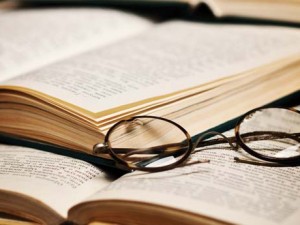Relationship Between History and Literature

History, on one hand, deals with the account of past events believed to be non-fictitious. On the other hand, Literature simply deals with anything that is creatively written for human consumption. It can also be referred to as a concept that deals with fictitious narration of imaginary or real emotional or historical past event(s).
These two terms are interwoven because all autographic or oral historical narrations are literature and most fictitious and non-fictitious literature texts are historical. One of the main objectives of these two concepts is to project into the future based on the past and the present situation(s). Anyway, the meeting points of these two important concepts in the field of humanities are briefly presented below.
Instructions
-
1
The Art of Imagination and Creativity
Writing and comprehending history requires an act of imagination and creativity, which are the main instruments commonly used in literature as well. Since it is generally believed that creativity aids easy presentation of facts and fallacies, a writer of history is expected to be creative enough to clearly and convincingly convey his message to his audience or readers.
Millions of historical events have been either written prosaically, dramatically or poetically. Therefore, a good historian is expected to be creative enough in his historical textual presentation, likewise a good litterateur needs a strong background in history to be able to hook and entertain his readers. -
2
Interdependency
As a teacher, literature is essential in helping students understand the mindset of a society, or a segment of society, in the time period of the novel. History is also a subject best taught through stories, as its name suggests.
So to put the bare historical facts into a story with real characters, interactions and emotions is a powerful teaching and learning tool in today's education system. In a nutshell, Literature often responds to historical events, and not always in an overt way. Read a work of literature, and you might get an idea as to how the author or those in his community responded to historical events. -
3
Reflections
By reading the literature that is written at a certain time and place, it might be possible to learn something about the concerns and values of that particular moment in history. Literature continues to reflect history, as history looks in the mirror which works of literature provide.
An example of this could be Shakespeare’s A Midsummer Night’s Dream. The play was written in the medieval period and it reflects some of the concerns that intellectuals (at least) had about the time. It shows how female children or women are treated by the medieval European society. Shakespeare believed that there was a need to exposed gender inequality in the European society, particularly in Italy.
Another good example of this can be found in Wole Soyinka’s A Play of Giant – a reflection of some catastrophic experience of people during the era of Mobutu in Uganda, etcetera. -
4
Widening Horizon
History aids literature by providing an opportunity to widen the range and scope of literary texts to which pupils are exposed.
For instance, you have a better understanding of Shakespeare’s King Henry VIII when you read the history of the search for the New World by the Puritans. Or read Christopher Marlow’s The Passionate Shepherd to His Love – then you will have a clear understanding of an example of socio-cultural challenges faced by people of the medieval time. Likewise, historical literature text helps students of history to develop critical thinking skills. -
5
Development of Interpretational Skills
A true reader of historical text becomes wittier and wittier every time s/he reads historical literatures, as s/he will need to do a close textual analysis by reflecting on purpose, content, structure and authorial choices of sentences and word level used.
This interpretation often tells you more about the person and the time in which it was produced than that in which it is set. This can be a valuable way to help students understand the world view of people at a particular period in history that may be very different to our own. In fact, literature provides an interpretation of the past which can be analysed and evaluated. -
6
Summary
Aristotle once said: History tells you what happened, while Literature tells you what ought to have happened. Contrary to opinion of majority, to him, Literature was more reliable than History – maybe because it is believed that a "true" and completely accurate history does not exist.
If nothing is added, something must be subtracted. This is the same case with literature – for we do learn about a society from the literature it produces, but the knowledge we learn is always fragmented and incomplete.
As Dr. Will Durant would say: "The present is the past rolled up for action, and the past is the present unrolled for understanding." The past that is the present unrolled for understanding is history, while the present termed as the past rolled up for action could be termed literature.







